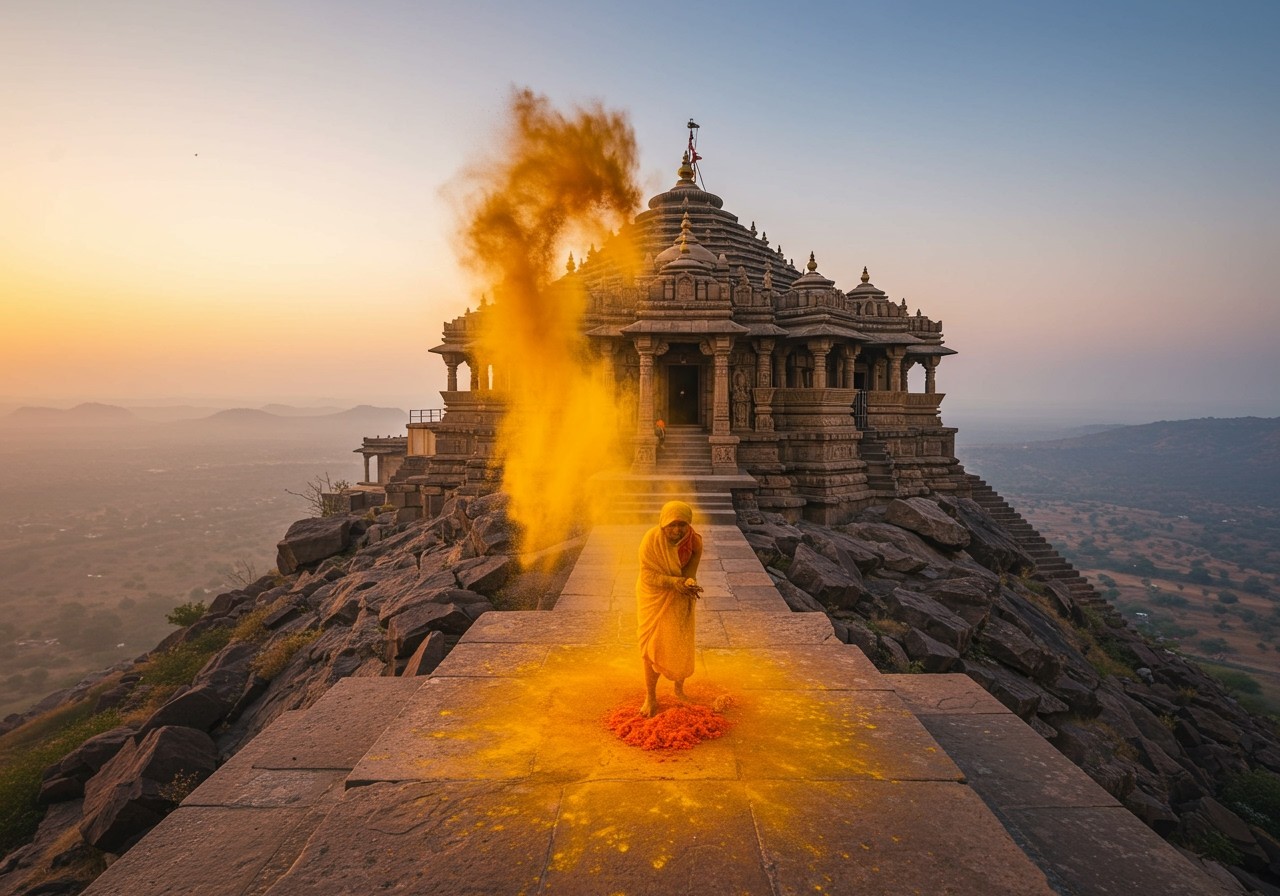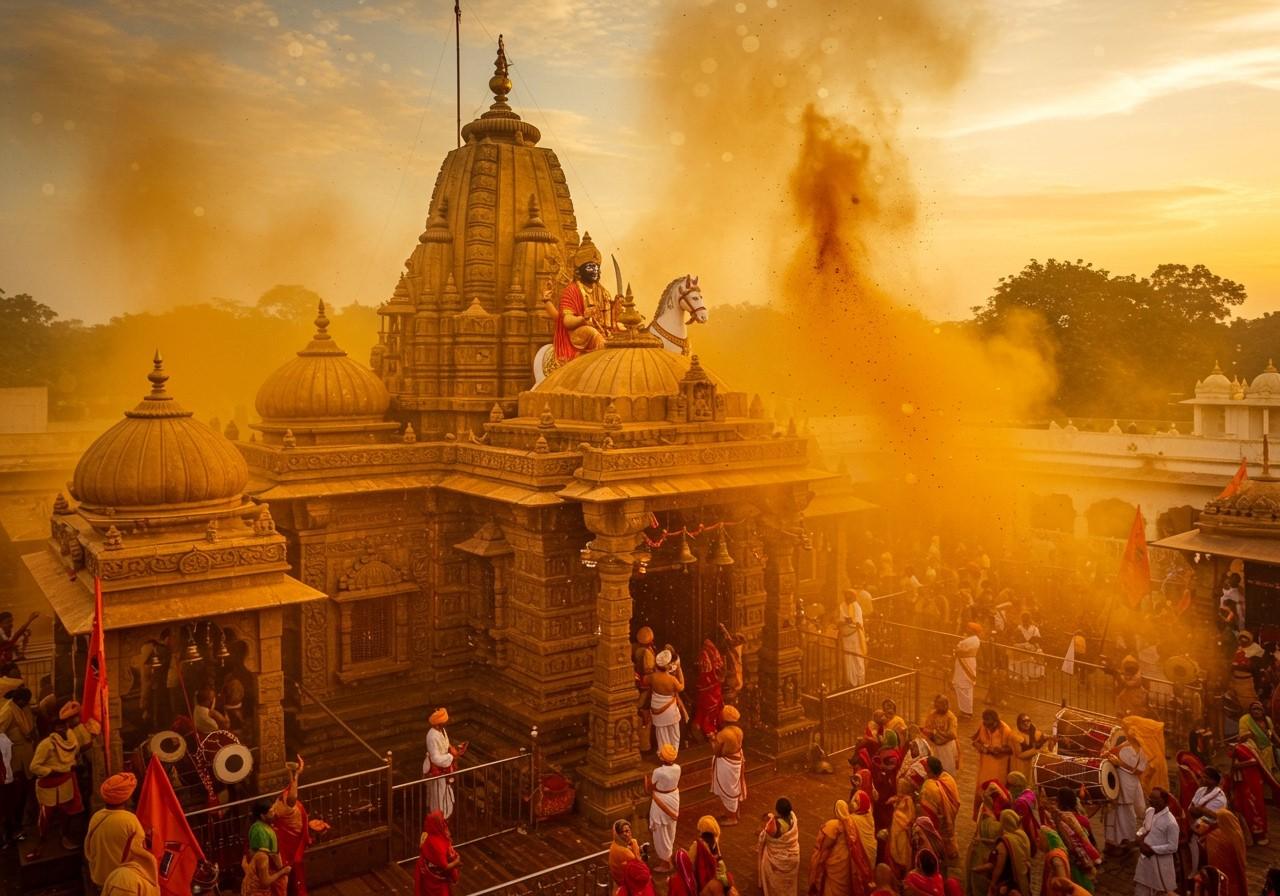
In India, some places are more than just dots on a map. They are feelings, they are vibrations, they are journeys that the soul takes. Jejuri, the sacred abode of Lord Khandoba in Maharashtra, is one such place. It’s a town steeped in turmeric-yellow faith and ancient stories. But it took a poet like Arun Kolatkar to peel back its layers and show us the heart that beats within, in his iconic poetry collection, Jejuri.
Kolatkar’s work isn’t just a travelogue in verse; it’s a deep, honest conversation about faith in the modern world. It takes you on a pilgrimage, not just up the steps of the temple, but into the very corners of your own beliefs.

More Than a Place: The Symbolism of Jejuri’s Sacred Ground
For Kolatkar, Jejuri isn’t just a backdrop; it’s a living character. The temples, the shrines, the myths surrounding Lord Khandoba—all of it becomes a canvas to explore the delicate dance between our modern, often skeptical minds and the ancient traditions that still call to us. The poem makes you feel the dust of the town, hear the temple bells, and see the world through the eyes of a pilgrim who is both a believer and an observer.
The Heart’s Tug-of-War: Faith, Doubt, and Modern Life
What makes Jejuri so relatable and powerful is its absolute honesty. Kolatkar doesn’t present a picture of perfect, unwavering faith. Instead, he explores the very human experience of oscillating between belief and skepticism. He shows us the sacred and the ordinary living side-by-side.
Through his sharp observations and gentle irony, he also touches upon how faith can sometimes become a transaction, a critique of the commercialisation that can creep into holy places. He seems to ask if true faith lies in the grand offerings or in the simple, quiet connection with the divine. It’s a question many of us ask ourselves in our spiritual lives.
A Quest for Meaning in a Universe of Connections
At its core, the journey to Jejuri in the poem is a metaphor for our own quest for identity and meaning. The small town reflects the vast universe, prompting us to think about our place in it all. The collection is a beautiful reminder of our connection to everything around us—people, nature, and even the smallest, seemingly insignificant things in our lives. It encourages us to see the divine not just in grand temples but in the entirety of life’s rich and varied tapestry.
While Kolatkar’s journey is one of the soul, many of us are inspired to undertake the physical pilgrimage to this holy town. If you feel the call of Lord Khandoba and are planning a visit, our practical guide to a Khandoba Temple trip can be incredibly helpful in making your journey smooth and spiritually fulfilling.
Bringing the Sacred Home: Your Connection to Tradition
Spiritual journeys, whether through poetry or to a physical destination, often inspire us to create a sacred corner in our own homes. A personal puja space helps us carry that sense of peace and connection into our daily lives. Finding authentic, spiritually resonant items is key to creating such a space.
Lord Khandoba is a powerful manifestation of Lord Shiva, the supreme being. For those who feel this deep connection, bringing home a representation of this divine energy can be a profound experience. At poojn.in, we understand this sentiment. You can find beautifully crafted murtis, like this Marble Dust Shiva Lingam for your daily worship, that carry the essence of these sacred traditions.
Diving Deeper into Kolatkar’s Masterpiece
Many readers have questions about this profound work. Let’s explore some common thoughts and curiosities.
Who was the poet behind this journey?
Arun Kolatkar, the genius behind Jejuri, was a pivotal figure in Indian poetry. His unique style of using simple, everyday language to describe deep, complex emotions makes his work incredibly powerful and accessible. His multicultural upbringing allowed him to see places like Jejuri with a unique, insightful perspective.
How does the poem act as a mirror to our culture?
Jejuri beautifully reflects the soul of India, where the ancient and the modern are always in conversation. It captures the essence of our rituals, our landscapes, and the way spirituality is woven into the fabric of daily life. It’s a snapshot of our cultural identity, with all its beautiful complexities.
Why is this poem still so important today?
Decades after it was written, Jejuri remains a cornerstone of Indian English poetry. Its timeless themes of faith, doubt, and the search for meaning continue to resonate with readers. It proves that a spiritual journey can be complex, personal, and profoundly human, making it a companion for anyone on their own path of discovery.


